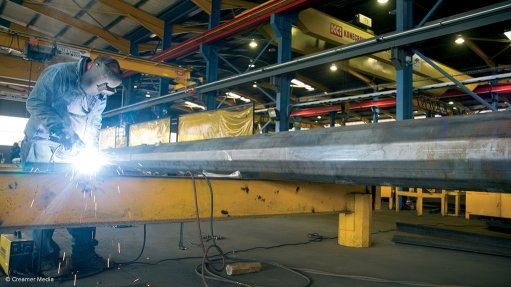
Photo by: Duane Daws
Advanced manufacturing was internationally regarded as critical to reversing the economically stifling effects of increasing deindustrialisation and could prove to be the answer to South Africa’s stagnant growth rate, the Manufacturing Indaba heard last week.
Government has long lamented the country’s receding manufacturing capability and dwindling industrial base, attempting redress through the introduction of a suite of incentives programmes through the Department of Trade and Industry (DTI), among them the Manufacturing Competitiveness Enhancement Programme (MCEP).
According to the Department of Science and Technology (DST), combinations of new and established intellectual capacity and manufacturing technologies – considered elements of advanced manufacturing – could be regarded as additional factors of production complementing traditional inputs, such as land, labour, materials, capital equipment and energy.
“There is no doubt that talent-driven innovation and advanced technologies are the primary drivers of manufacturing competitiveness into the future,” commented DST technology, localisation, beneficiation and advanced manufacturing chief director Beeuwen Gerryts.
Government’s MCEP, which is one of the key action programmes of the Industrial Policy Action Plan, provides enhanced manufacturing support aimed at encouraging manufacturers to upgrade their production facilities in a manner that sustains employment and improves the efficiency of value-addition in the short to medium term.
The programme comprises two subprogrammes – the Production Incentive and the Industrial Financing Loan Facilities – which are managed by the DTI and the Industrial Development Corporation respectively.
The DTI also offers an Industrial Policy Niche Projects Fund catering for projects that are focused on new areas with the potential for job creation, diversification of manufacturing output and contribution to exports, but are otherwise not candidates for commercial funding.